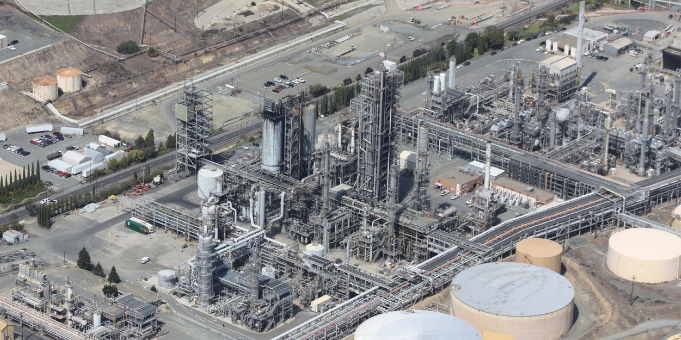We have been hearing a lot about the provisions in the recently passed Inflation Reduction Act that will help incentivize residents to move away from fossil fuels. However, did you know that the Inflation Reduction Act will also put money back into cleaning up our country’s worst toxic waste sites? The IRA reinstates an excise tax on petroleum and chemical manufacturers that had been used to fund the Superfund program since 1980 but which had lapsed in 1995. This is a piece of legislation that promises to keep giving. The article below was originally published on August 12, 2022.
Congress Passes Climate Deal, Reinstating ‘Polluter Pays’ Tax on Oil Industry
The tax will help clean up Superfund sites and protect American communities from toxic waste
By Emily Rogers
Zero Out Toxics, Advocate, PIRG
Congress passed the Inflation Reduction Act by a 220-207 vote. Among major climate and energy efficiency provisions, the bill includes an oil excise tax to fund Superfund toxic waste site cleanups nationwide. The bill also reinstates one of several “polluter pays” taxes that fund the Environmental Protection Agency’s (EPA) Superfund program yet was allowed to lapse 27 years ago. This program is responsible for cleaning up the country’s most hazardous waste sites. President Joe Biden is expected to sign the bill into law.
One in five Americans lives within three miles of a proposed or listed Superfund toxic waste site, potentially increasing their risk of cancer, heart and respiratory problems and other serious illnesses. To make matters worse, severe climate-induced natural disasters such as hurricanes threaten to flood Superfund sites and spread contamination into nearby communities.
When Congress established the Superfund in 1980, most of the program’s funding came from an excise tax on petroleum and chemical manufacturers. In 1995, Congress failed to pass legislation to renew the tax and the cost burden fell to taxpayers. Currently, there are 1,333 sites on the National Priorities List, which are located in nearly all 50 states. Of these sites, 78.5% have been on the list for more than 20 years.
Since the “polluter pays” taxes lapsed in 1995, the Superfund program languished because it lacked funding. President Joe Biden’s bipartisan infrastructure package, signed into law last year, reauthorized the polluter pays tax on chemical companies. The reinstated tax on the oil industry, which contributes significantly to the pollution found at many Superfund sites, is an important part of fully funding the program.
U.S. PIRG Zero Out Toxics Advocate Emily Rogers issued the following statement:
“For too long, polluting companies have shirked their responsibility for cleaning up toxic waste, unfairly shifting the burden onto the American taxpayer. The bipartisan infrastructure law took a big step forward by reinstating the ‘polluter pays’ tax on chemical companies. Now, Congress has finished the job by reinstating the polluter pays tax on petroleum companies. Going forward, polluters, rather than American taxpayers, will be held increasingly responsible for funding the Superfund program and cleaning up their toxic messes. By fully funding the Superfund program through these taxes, we are ensuring that the EPA has the resources it needs to quickly and safely clean up the United States’ most hazardous and dangerous toxic waste sites. I thank the U.S. Senate and House for renewing our nation’s commitment to health and environmental safety over any industry’s bottom line.”


Recently on Twitter